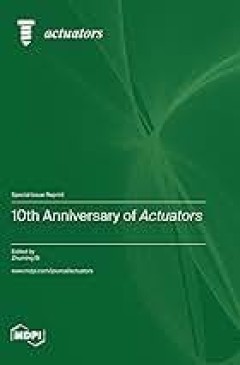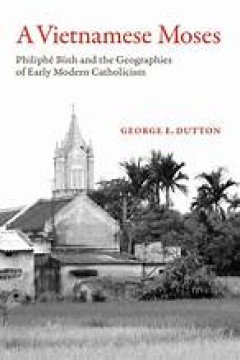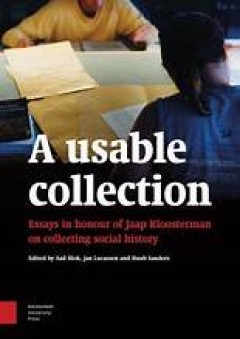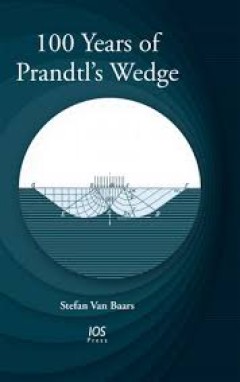Filter by

10th Anniversary of Actuators
This is a reprint of the articles from the Special Issue entitled "10th Anniversary of Actuators", published in the open-access journal, Actuators. It consists of 18 representative works with four main topics: systematic reviews for specific types of actuators, performance evaluation, design and controls, and new actuators' applications. This reprint helps readers to understand the challenges a…
- Edition
- -
- ISBN/ISSN
- 9783036579016, 9783036579009
- Collation
- -
- Series Title
- -
- Call Number
- -

100% Renewable Energy Transition: Pathways and Implementation
Energy markets are already undergoing considerable transitions to accommodate new (renewable) energy forms, new (decentral) energy players, and new system requirements, e.g. flexibility and resilience. Traditional energy markets for fossil fuels are therefore under pressure, while not-yet-mature (renewable) energy markets are emerging. As a consequence, investments in large-scale and capital in…
- Edition
- -
- ISBN/ISSN
- 9783039280353, 9783039280346
- Collation
- -
- Series Title
- -
- Call Number
- -

A Constellation of Courts : The Courts and Households of Habsburg Europe, 155…
This volume focuses on the various Habsburg courts and households of the two branches of the dynasty that arose following the division of the territories originally held by Charles V. The authors trace the connections between these courtly communities regardless of their standing or composition, exposing the underlying network they formed. By cutting across the traditional division in the histo…
- Edition
- -
- ISBN/ISSN
- 9789058679901
- Collation
- 394 hlm
- Series Title
- -
- Call Number
- -

«A Marvellous and Strange Event» Racconti di nascite mostruose nell'Inghil…
In early modern England, the birth of a human being with congenital physical deformities was an event which aroused horror and fascination, disgust and morbid curiosity. In a time when modern science was taking its first steps, this kind of prodigy sometimes appeared as a sort of divine punishment for a moral fault, sometimes as a bizarre pastime, or political weapon, or a pre-medical investiga…
- Edition
- -
- ISBN/ISSN
- 9788864533452
- Collation
- oer.unej.ac.id
- Series Title
- Premio Tesi di Dottorato,
- Call Number
- -

A World You Do Not Know Settler Societies, Indigenous Peoples and the Attack…
A World You Do Not Know explores the wilful ignorance demonstrated by North America’s settlers in establishing their societies on lands already occupied by indigenous nations. Using the Innu of Labrador-Quebec as one powerful contemporary example, Colin Samson shows how the processes of displacement and assimilation today resemble those of the 19th century as the state and corporations scramb…
- Edition
- -
- ISBN/ISSN
- 9781912250394
- Collation
- oer.unej.ac.id
- Series Title
- Critical Human Rights Studies,
- Call Number
- University of London Press

A Vietnamese Moses: Philiphê Bỉnh and the Geographies of Early Modern Cath…
A Vietnamese Moses is the story of Philiphê Bỉnh, a Vietnamese Catholic priest who in 1796 traveled from Tonkin to the Portuguese court in Lisbon to persuade its ruler to appoint a bishop for his community of ex-Jesuits. Based on Bỉnh’s surviving writings from his thirty-seven-year exile in Portugal, this book examines how the intersections of global and local Roman Catholic geographies …
- Edition
- -
- ISBN/ISSN
- 9780520966697
- Collation
- oer.unej.ac.id
- Series Title
- -
- Call Number
- History Asian history

A Usable Collection
Established in 1935, the International Institute of Social History (IISH) is one of the world’s leading research institutes focused on social history and holds one of the richest collections in the field. This volume brings together thirty-five essays in honor of the IISH’s longtime director Jaap Kloosterman, who built the institute into a world leader in the field.
- Edition
- -
- ISBN/ISSN
- -
- Collation
- oer.unej.ac.id
- Series Title
- -
- Call Number
- -

100 Years of Prandtl's Wedge
The biggest problem for a shallow foundation, just as for any other type of foundation, is a failure due to an overestimation of the bearing capacity. This means that the correct prediction of the bearing capacity of the foundation is often the most important part of the design of a civil structure. That is why the publication by Prandtl in 1920 about the hardness of a plastic body, was a major…
- Edition
- -
- ISBN/ISSN
- 9781614998495, 9781614998501
- Collation
- -
- Series Title
- -
- Call Number
- -

“We are not only English Jews—we are Jewish Englishmen”: The Making of …
Between 1840 and 1880, a mature, increasingly comfortable, native-born Jewish community emerged and matured in London. The history of this community and the ways it developed are explored in this volume using archival and also contemporary advertising material that appeared in the Jewish Chronicle and other Anglo-Jewish newspapers in these years.
- Edition
- -
- ISBN/ISSN
- 9781644690864
- Collation
- -
- Series Title
- -
- Call Number
- -

“Tsar and God”: and Other Essays in Russian Cultural Semiotics
Featuring a number of distinguished essays by internationally known Russian cultural historians Boris Uspenskij and Victor Zhivov, this collection encompasses various ground-breaking works appearing in English for the first time. Focusing on several of the most interesting and problematic aspects of Russia’s cultural development, these essays examine the survival and reconceptualization of Ru…
- Edition
- -
- ISBN/ISSN
- 9781618116703
- Collation
- -
- Series Title
- -
- Call Number
- -
 Computer Science, Information & General Works
Computer Science, Information & General Works  Philosophy & Psychology
Philosophy & Psychology  Religion
Religion  Social Sciences
Social Sciences  Language
Language  Pure Science
Pure Science  Applied Sciences
Applied Sciences  Art & Recreation
Art & Recreation  Literature
Literature  History & Geography
History & Geography